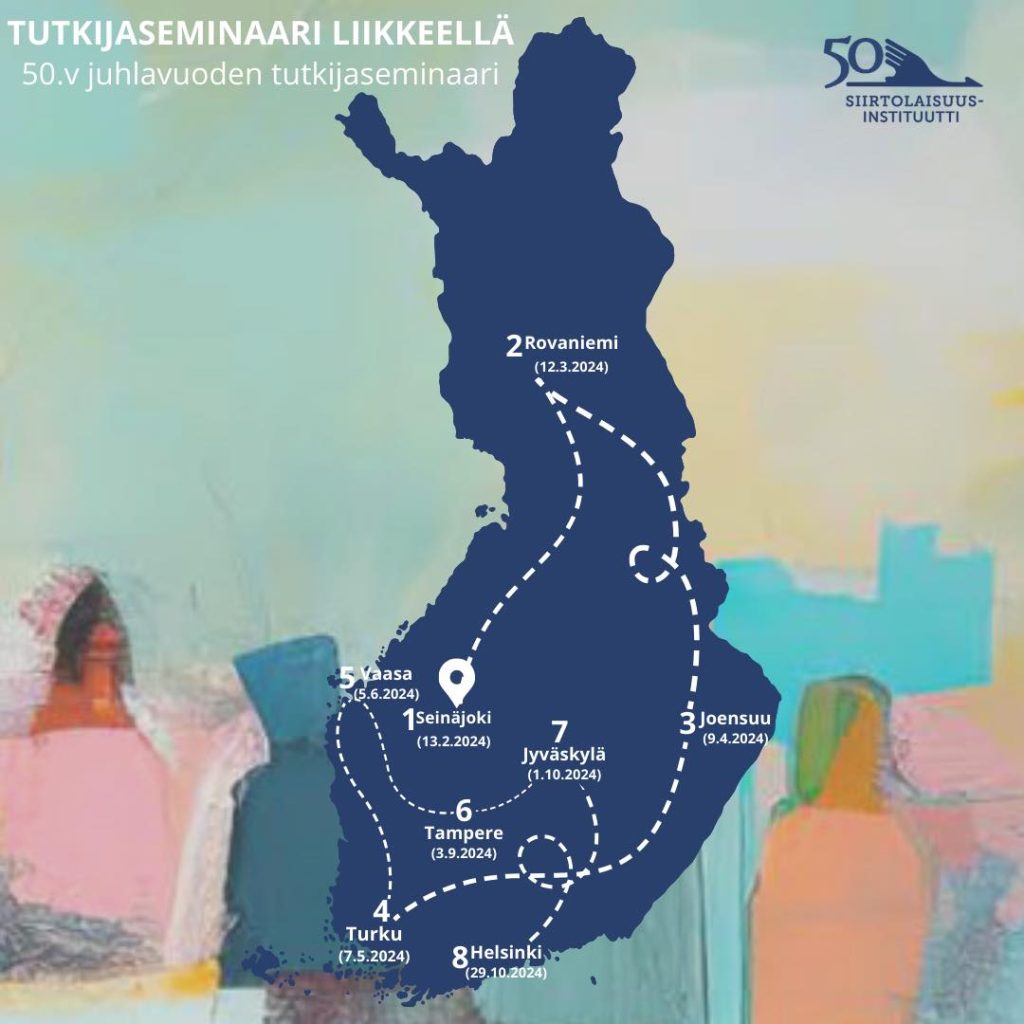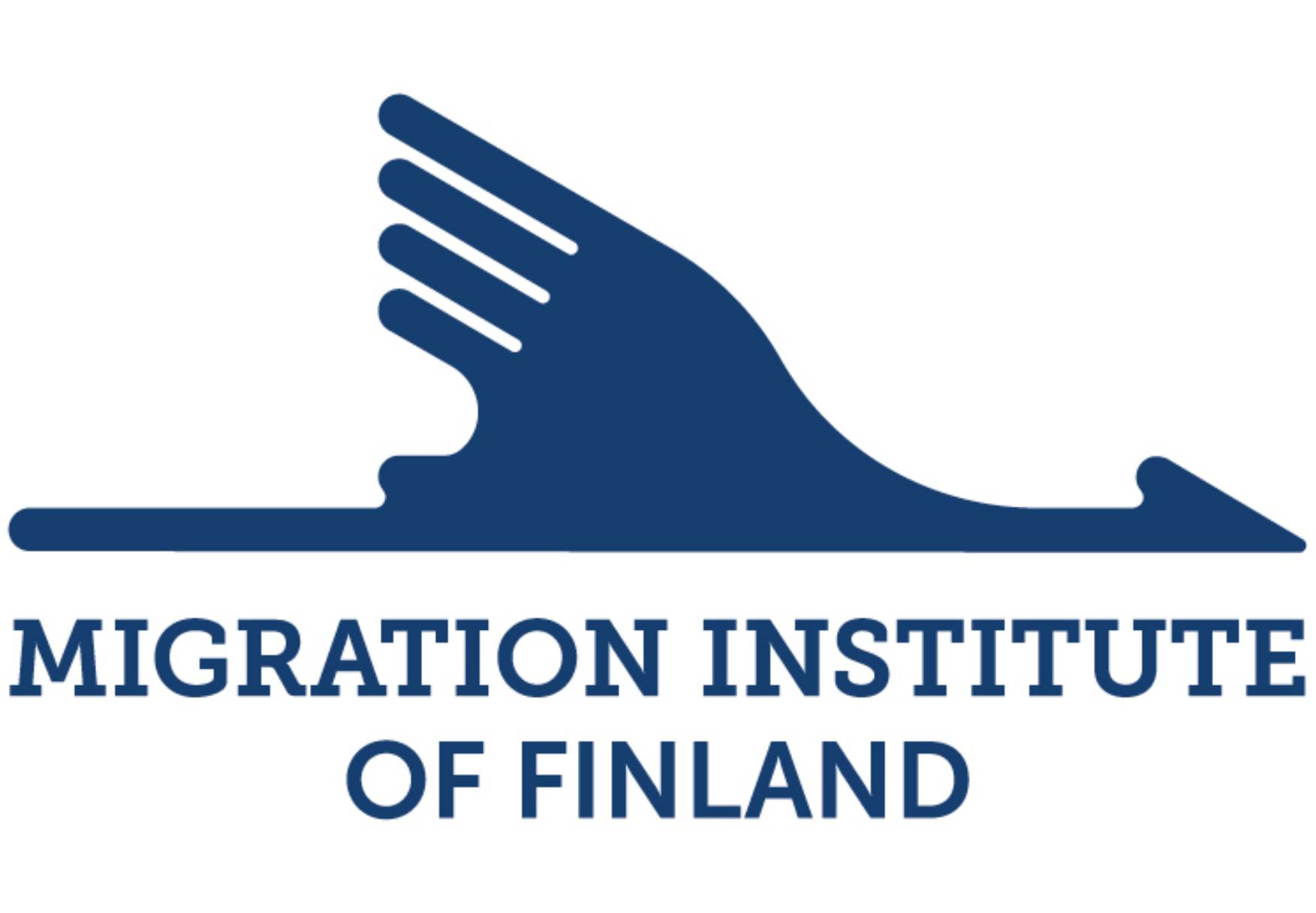The last “Research Seminar on the Move” event organized in honor of the Migration Institute of Finland’s 50th anniversary arrives in Helsinki. The theme of the seminar is “Work, labour and mobility – some reflections”. Speakers at the event are Mari Toivanen, Olivia Maury and Nilay Kılınç. The speeches are focused on how will the future of work and mobilities look like and what emerging trends can be distinguished in this regard.
Main language of the event is English.
Time: Tuesday 29.10.2024 at 12.15–13.45 EET
Venue: Swedish School of Social Science, University of Helsinki, seminar room 210 (Yrjö-Koskisen katu 3, Helsinki)
Event format: Hybrid (on site and Zoom)
Programme of the seminar:
The programme includes short opening speeches, followed by a panel discussion and Q&A session.
Mari Toivanen (Academy Research Fellow, University of Helsinki):
Olivia Maury (Senior researcher, University of Helsinki):
Nilay Kılınç (Postdoctoral researcher, University of Helsinki):
Closing Debate
Participation in the seminar:
The seminar will be organised as a hybrid event. It is possible to participate either on-site at the University of Helsinki, or electronically using Zoom remote software. A Zoom link will be sent to those who register before the event. On-site participants of the event do not need to register for the seminar.
Please register for the seminar in advance via this link by 28.10.2024 if you are participating remotely.
For more information about the seminar in Helsinki: mari.toivanen(a)helsinki.fi
Historically, work and mobilities have been closely tied to one another. Indeed, crossing international borders for work has been one of the main motivations behind global migratory movements and continues to be so to this day. In 2019, there were 169 million international migrant workers globally and they constitute almost 5% of the global work force (ILO 2021). This number does not include work-related lifestyle mobilities and other, short-term mobilities that are motivated by work-related reasons and often remain outside the official statistics.
The connection between work and mobilities have always reflected the inequalities between Global North and Global South. For instance, the EU-citizens mobility rights have been predicated on the development of free movement of labour in the EU zone. Simultaneously, as the EU zone has become to mean free movement within its borders for EU citizens, the external boundaries of the EU zone have been enforced, making it more difficult to enter the EU zone. The limitations in the right to work and move continue to depend on one’s citizenship status. For instance, work is framed as a right or obligation for non-EU citizens’ rights in terms of their residency and mobility rights, thus putting non-EU citizens at a greater risk of exclusion. Also, the post-pandemic changes in mobilities and work, for instance, the increase in location-independent work is leading to new types of privileged mobilities, with states revising mobility regimes to attract highly skilled mobile workers. Another key aspect is the re-structuring of labour markets and the emergence of platform economies that directly contribute to labour precarities among gig workers, who are often migrants.
How will the future of work and mobilities look like? What emerging trends can be distinguished in this regard?

50th anniversary research seminar
The Migration Institute of Finland turns 50 in 2024! To celebrate the anniversary, the popular and open to the public research seminars of the Migration Institute will visit different university cities: Seinäjoki, Rovaniemi, Joensuu, Turku, Vaasa, Tampere, Jyväskylä and Helsinki. We want to bring researchers, research topics and interesting discussions close to you. Find the programme for the quinquagenary year here.
Warmly welcome to our research seminars!

